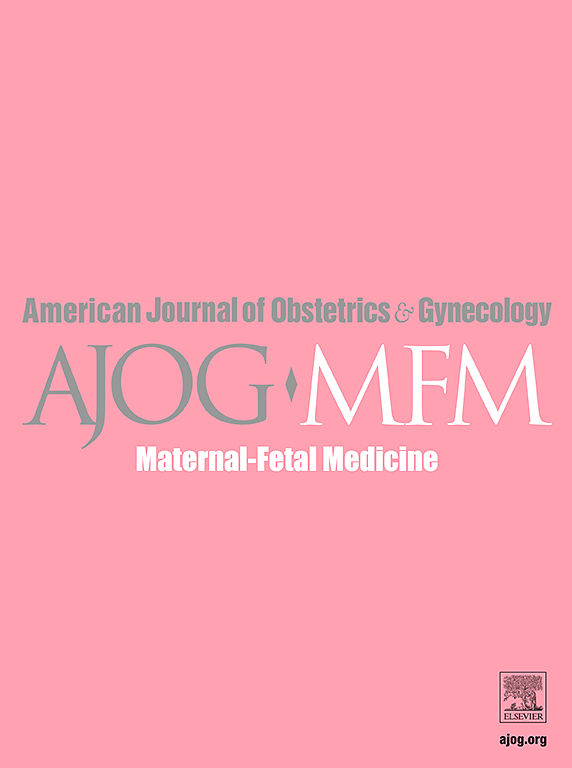Aspirin dosage for preeclampsia prophylaxis: an argument for 81-mg dosing
IF 3.8
2区 医学
Q1 OBSTETRICS & GYNECOLOGY
American Journal of Obstetrics & Gynecology Mfm
Pub Date : 2025-03-01
DOI:10.1016/j.ajogmf.2024.101568
引用次数: 0
Abstract
Research conducted over the past few decades has shown that low-dose aspirin can effectively reduce the risk of developing preeclampsia. Consequently, numerous prominent organizations have adopted the recommendation to use low-dose aspirin during pregnancy to prevent preeclampsia. However, the optimal dosage of low-dose aspirin (81mg versus 162mg) remains a subject of debate. Currently, there is insufficient high-quality data to justify the use of a higher dosage of low-dose aspirin. In this review, we review the existing evidence that supports the continued use of 81mg of aspirin over a higher dose and emphasize the need for high-quality research to alter current recommendations.
用于子痫前期预防的阿司匹林剂量:81 毫克剂量的论据。
过去几十年的研究表明,低剂量的阿司匹林可以有效地降低患先兆子痫的风险。因此,许多著名的组织已经采纳了在怀孕期间使用低剂量阿司匹林来预防子痫前期的建议。然而,低剂量阿司匹林的最佳剂量(81mg vs 162mg)仍然是一个有争议的话题。目前,没有足够的高质量数据来证明使用更高剂量的低剂量阿司匹林是合理的。在这篇综述中,我们回顾了现有的证据,这些证据支持继续使用81mg阿司匹林,而不是更高的剂量,并强调需要高质量的研究来改变目前的建议。
本文章由计算机程序翻译,如有差异,请以英文原文为准。
求助全文
约1分钟内获得全文
求助全文
来源期刊

American Journal of Obstetrics & Gynecology Mfm
Medicine-Medicine (all)
CiteScore
7.40
自引率
3.20%
发文量
254
审稿时长
40 days
期刊介绍:
The American Journal of Obstetrics and Gynecology (AJOG) is a highly esteemed publication with two companion titles. One of these is the American Journal of Obstetrics and Gynecology Maternal-Fetal Medicine (AJOG MFM), which is dedicated to the latest research in the field of maternal-fetal medicine, specifically concerning high-risk pregnancies. The journal encompasses a wide range of topics, including:
Maternal Complications: It addresses significant studies that have the potential to change clinical practice regarding complications faced by pregnant women.
Fetal Complications: The journal covers prenatal diagnosis, ultrasound, and genetic issues related to the fetus, providing insights into the management and care of fetal health.
Prenatal Care: It discusses the best practices in prenatal care to ensure the health and well-being of both the mother and the unborn child.
Intrapartum Care: It provides guidance on the care provided during the childbirth process, which is critical for the safety of both mother and baby.
Postpartum Issues: The journal also tackles issues that arise after childbirth, focusing on the postpartum period and its implications for maternal health. AJOG MFM serves as a reliable forum for peer-reviewed research, with a preference for randomized trials and meta-analyses. The goal is to equip researchers and clinicians with the most current information and evidence-based strategies to effectively manage high-risk pregnancies and to provide the best possible care for mothers and their unborn children.
 求助内容:
求助内容: 应助结果提醒方式:
应助结果提醒方式:


